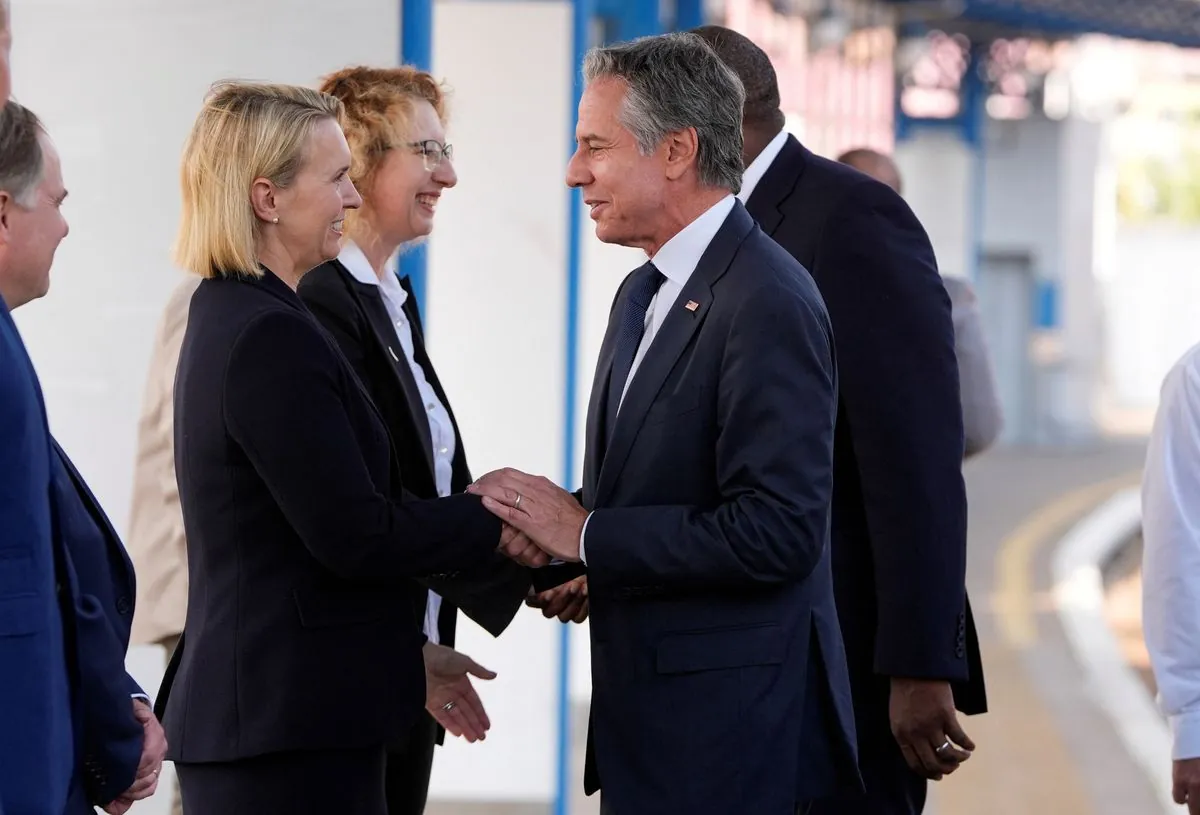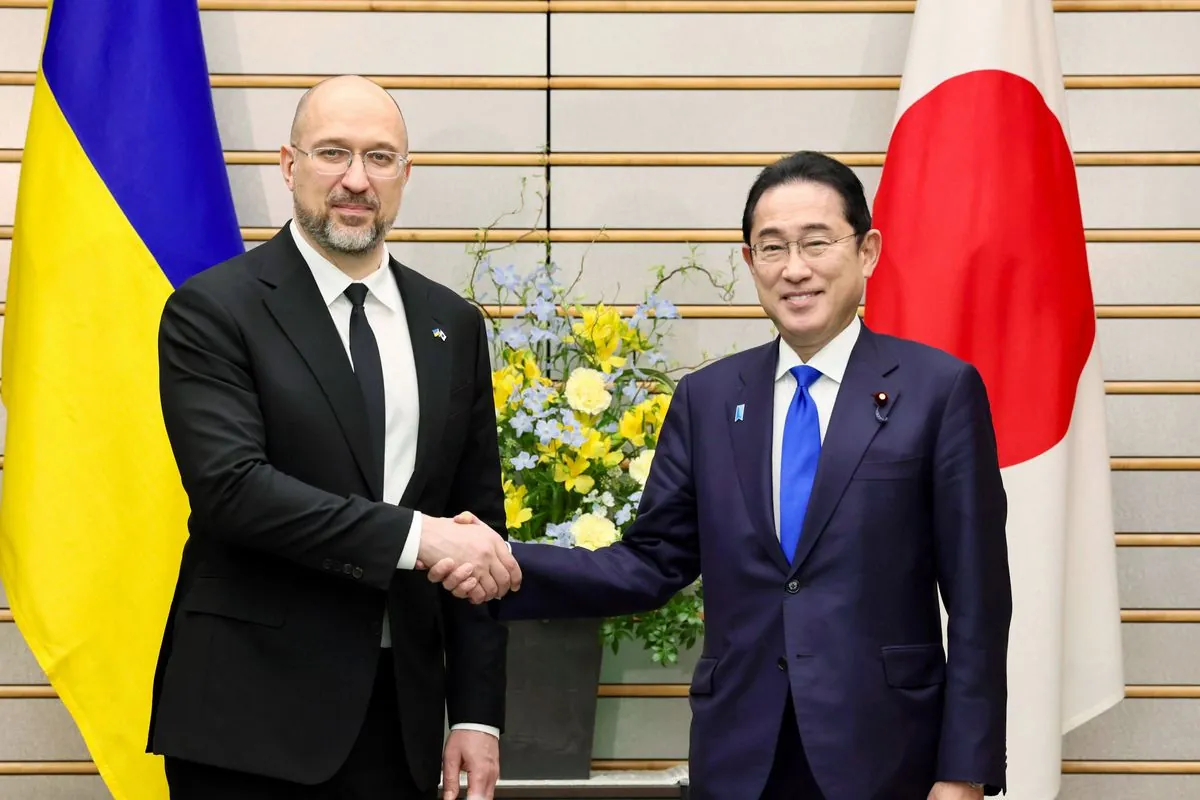U.S. and U.K. Top Diplomats Visit Kyiv Amid Ukraine's Plea for Long-Range Weapons
Blinken and Lammy arrive in Kyiv as Ukraine seeks approval for long-range missiles. The visit precedes talks between British PM and U.S. President, with Ukraine's defense capabilities high on the agenda.

In a significant display of solidarity, Antony Blinken and David Lammy, the top diplomats from the United States and United Kingdom respectively, arrived in Kyiv on September 11, 2024. Their joint visit comes at a crucial time, as Ukraine continues to seek approval for the use of long-range missiles against Russian targets.
The diplomatic mission unfolds against the backdrop of escalating tensions, with Blinken recently accusing Iran of supplying Russia with Fath-360 short-range ballistic missiles. This development has been characterized as a "dramatic escalation" in the ongoing conflict, which began with Russia's full-scale invasion on February 24, 2022.

Denys Shmyhal, Ukraine's Prime Minister, emphasized the critical need for long-range weaponry during discussions with the visiting officials. He stated, "We hope that long-range equipment for strikes on the territory of our enemy will be reached and we will have it." Shmyhal underscored the potential of such weapons to enhance civilian safety by neutralizing threats at their source.
The visit precedes a significant meeting scheduled for September 13, 2024, between British Prime Minister Keir Starmer and U.S. President Joe Biden at the White House. Ukraine's request for advanced missile capabilities is expected to be a key topic of discussion during this high-level engagement.
"If we are allowed to destroy military targets or weapons prepared by the enemy for attacks on Ukraine, it would certainly bring more safety for our civilians, our people, and our children."
Currently, the U.S. policy allows Ukraine to use American-provided missiles for self-defense across the Russian border, but with distance limitations to prevent further escalation of the conflict. This stance has been a point of contention as Ukraine seeks to expand its defensive capabilities.
The joint visit by Blinken and Lammy serves as a public demonstration of U.S.-U.K. support for Ukraine, particularly as the country braces for what is anticipated to be a challenging winter marked by intensified Russian attacks. Recent weeks have seen an uptick in nightly missile and drone strikes, primarily targeting Ukraine's critical energy infrastructure.
In a related development, the U.K. government announced sanctions against 10 commercial vessels accused of illicitly transporting Russian oil in violation of international sanctions. These ships now face restrictions from British ports and potential detention if they enter U.K. waters.
The ongoing conflict has had far-reaching implications, triggering the largest refugee crisis in Europe since World War II and significantly impacting global food and energy prices. Despite these challenges, international support for Ukraine remains strong, with the U.S. having provided over $75 billion in total assistance since the war's onset.
As the situation evolves, the international community continues to grapple with the complex task of supporting Ukraine's defense while mitigating the risk of further escalation in this protracted conflict.


































